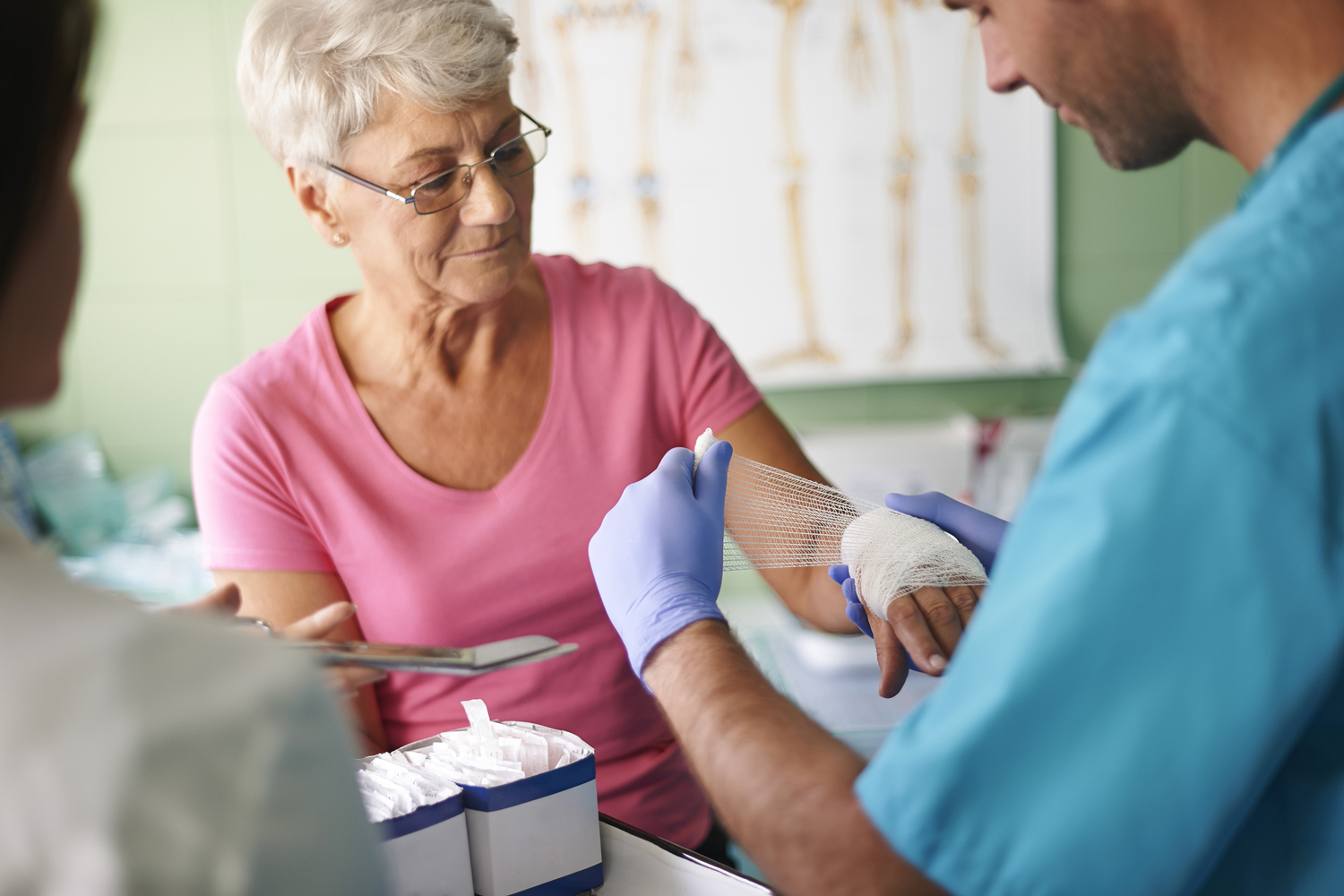When it comes to specialized orthopedic care, you can avoid a trip to the emergency room and longer wait times by visiting an orthopedic urgent injury clinic. Here at DMOS, we provide walk-in access to urgent care to treat your acute or unexpected muscle, bone, or joint injuries.
At DMOS Urgent Injury Clinic, we see anything from sports injuries to fractures and sprains. However, you can find the most common orthopedic injuries we see and treat below.
Ankle Sprains
Ankle sprains occur when the ligaments that support the ankle extend beyond their limits and tear. Most ankle sprains are minor and can heal with at-home treatments such as the RICE method (rest, ice, compression, elevate) and are common in individuals of all ages. Ankle sprains can happen unexpectedly during various activities, from sports activities to falling down stairs.
However, some ankle sprains can be more severe than others. If you experience common symptoms such as; difficulty putting weight on or walking on your ankle without pain, swelling, bruising, tenderness to touch, or instability of the ankle, we recommend visiting our Urgent Injury Clinic. You may also consider scheduling an appointment with one of our foot and ankle specialists to avoid complications down the road.
Wrist Fractures
According to the American Academy of Orthopaedic Surgeons (AAOS), distal radius fractures are prevalent, and the radius is the most frequently broken bone in the arm. This fracture is also known as a broken wrist.
Falling onto an outstretched arm is the typical cause of a wrist fracture and can happen during sports activities to household duties. Symptoms include immediate pain, bruising, swelling, or a wrist deformity. When dealing with a fracture of the wrist, It is essential to visit an Urgent Injury Clinic or schedule an appointment with a hand and upper extremity specialist to determine the type of fracture because some fractures are treated differently than others.
Knee Injuries
Some of the more frequent knee injuries include dislocations, fractures, and ligament tears. Sports-related knee injuries are common in the Urgent Injury Clinic, such as Anterior Cruciate Ligament (ACL) and meniscus tears. Simple movements such as changing direction at a fast pace, landing incorrectly, or falling could tear an ACL or meniscus.
Symptoms such as pain and swelling in and around the knee may indicate a knee injury. If you experience these symptoms, utilize the RICE method and visit an Urgent Injury Clinic or request an appointment with one of our knee or sports medicine specialists to prevent furthering the potential injury.
Shoulder Injuries
Our shoulders are widely considered to be the most unstable joint in the body. Shoulder injuries are often caused by sports activities that involve heavy use and motion of the shoulder. However, everyday household maintenance like hanging and installing heavier decorations, cleaning, or gardening can cause injury.
Rotator cuff injuries, as well as shoulder instability, are common shoulder injuries. If you are experiencing common symptoms such as a stiff shoulder, lack of shoulder strength, or feeling like your shoulder could pop out of the socket, you should visit an Urgent Injury Clinic or request an appointment with one of our shoulder specialists.
Have you experienced an unexpected orthopedic injury and need to be seen today? See our Urgent Injury Clinic wait times here.
*Disclaimer: The content of this blog is for informational purposes only. Please consult your healthcare professional for any medical questions. While we make every effort to ensure the information we share is accurate, we welcome comments, suggestions, or corrections of errors. This blog should not be used in any legal capacity whatsoever, including but not limited to establishing a “standard of care” in legal sense or basis for expert witness testimony. No guarantee is given regarding the accuracy of any statements or opinions made on this blog or website. In no way does listening, reading, emailing, or interacting on social media with our content establish a doctor-patient relationship. This blog is not medical advice. If necessary, please seek treatment immediately*






